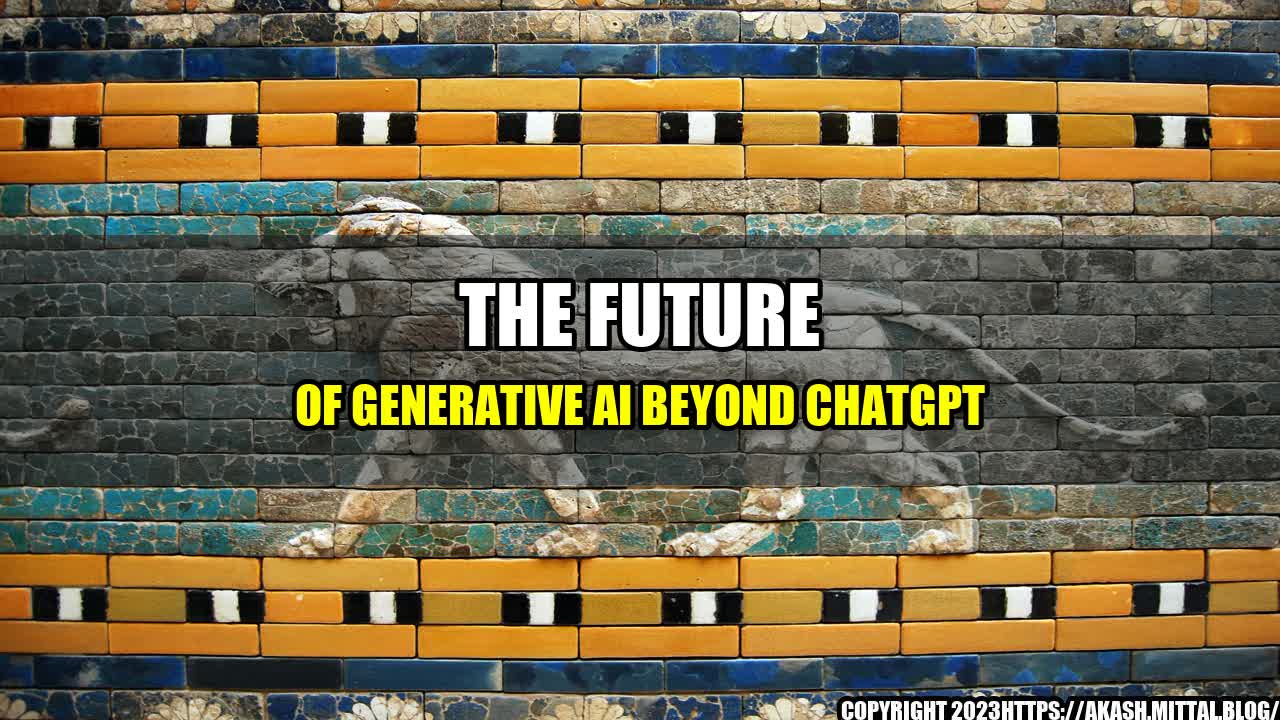Imagine walking into a restaurant and being greeted by an AI-powered hostess who knows your food preferences, allergies, and previous orders. As you sit down at your table, another AI-driven system suggests dishes based on your mood, health goals, and taste preferences. The kitchen is also powered by AI, ensuring that each dish is cooked to perfection and delivered to your table at the right time. As you pay your bill using a facial recognition system, you wonder what else AI can do beyond chatbots and customer service.
The Current State of AI
AI has come a long way since the early days of rule-based systems and basic chatbots. Today's AI systems are capable of performing complex tasks such as image and speech recognition, natural language processing, and decision making. Deep learning, a subfield of AI, has enabled machines to learn from vast amounts of data and improve their performance over time.
One of the most well-known generative AI systems is OpenAI's GPT-3, a language model that can generate human-like text based on a given prompt. GPT-3 has shown great promise in several applications, from chatbots and virtual assistants to content creation and language translation.
However, GPT-3 is just the tip of the iceberg when it comes to generative AI. Researchers and companies are exploring the potential of AI in various industries, from healthcare and finance to education and entertainment.
AI's Potential in Different Industries
In healthcare, AI can help doctors and nurses diagnose and treat patients more efficiently and accurately. For example, AI-powered systems can analyze medical images and identify abnormalities that might be missed by human radiologists. AI can also analyze patient data to predict health outcomes and personalize treatments.
In finance, AI can improve fraud detection, risk assessment, and trading strategies. AI-powered systems can analyze vast amounts of financial data and identify patterns and anomalies that might be missed by human analysts. AI can also help investors make better decisions by providing real-time market insights and recommendations.
In education, AI can personalize learning experiences and provide students with feedback and support. AI-powered systems can analyze student data to identify areas of strength and weakness, provide personalized recommendations for study materials, and track progress over time. AI can also assist teachers in curriculum design and grading.
In entertainment, AI can create new forms of media and improve existing ones. AI-powered systems can generate music, art, and literature based on a given prompt or style. AI can also analyze audience data to personalize media experiences, such as recommending movies and TV shows based on viewing history.
These are just a few examples of the potential of AI in different industries. As AI technology continues to evolve, we can expect to see more applications that improve efficiency, accuracy, and personalization.
The Impact of AI on Society
While AI has the potential to bring many benefits to society, there are also concerns about its impact on jobs, privacy, and ethics. As AI becomes more advanced, there is a risk that it will replace human workers in certain industries, leading to job loss and income inequality.
Privacy is also a concern, as AI-powered systems have access to vast amounts of personal data. There is a risk that this data could be misused or stolen, leading to identity theft and other forms of cybercrime.
Finally, there are ethical concerns surrounding the use of AI in decision making. AI-powered systems can be biased or have unintended consequences, leading to unfair or harmful outcomes. It is important to ensure that AI is developed and used in a responsible and ethical manner.
As AI continues to evolve, it will be important to address these concerns and ensure that the benefits of AI are distributed fairly and equitably.
Conclusion
AI has come a long way since the early days of rule-based systems and basic chatbots. Today's AI systems are capable of performing complex tasks and improving over time. While GPT-3 has shown great promise in chatbots and content creation, the potential of AI extends far beyond these applications.
AI has the potential to revolutionize many industries, from healthcare and finance to education and entertainment. However, there are also concerns about the impact of AI on jobs, privacy, and ethics. It will be important to address these concerns and ensure that the benefits of AI are distributed fairly and equitably.
In conclusion, AI has the potential to bring many benefits to society, but it is important to develop and use it in a responsible and ethical manner.
- AI has the potential to revolutionize many industries
- There are concerns about the impact of AI on jobs, privacy, and ethics
- It is important to develop and use AI in a responsible and ethical manner

Curated by Team Akash.Mittal.Blog
Share on Twitter Share on LinkedIn